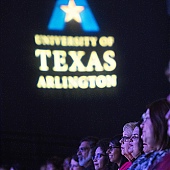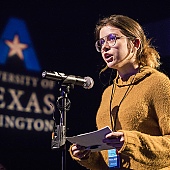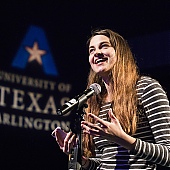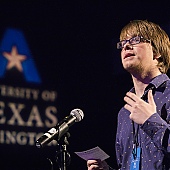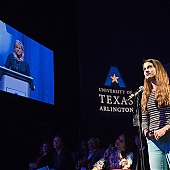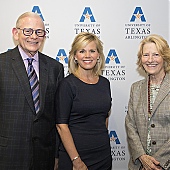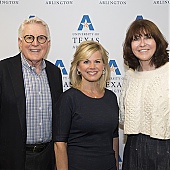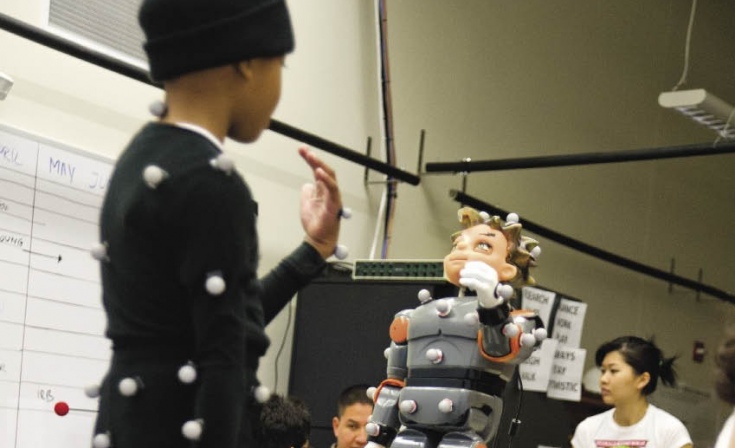
Kid Friendly
Lifelike robot aids autistic children
Winter 2012 · Comment ·
A 2-foot-tall robot named Zeno could offer hope for children with autism.
UT Arlington researchers have teamed with colleagues at the UNT Health Science Center, the Dallas Autism Treatment Center, Texas Instruments, and Hanson Robotics in Plano to rework Zeno and other lifelike robots to improve early detection of the developmental disorder.
Led by electrical engineering Associate Professor Dan Popa, researchers believe Zeno can help diagnose autism in infants and toddlers before traditional assessments that rely on speech and social interactions.
The goal is to create a human-robot interaction for early diagnosis and treatment of children with autism spectrum disorders. The work is funded in part by a grant from the Texas Medical Research Collaborative. Researchers aim to develop a robot that not only interacts with autistic children but measures a child’s movement and indicates what therapies work best.
“It’s more than just seeing how autistic children react when interacting with the robot,” says Dr. Popa, director of the Next Generation Systems group at the UT Arlington Research Institute. “Eventually, we want to customize the robot to better fit individual needs of children with autism.”
Pamela Rainville learned of the research from Dallas Autism Treatment Center officials. It sounded like something her 7-year-old son, Anthony, would enjoy and benefit from.
“It’s always good for Anthony to be put in different situations, things outside his normal routine,” Rainville says. “Any time he can be around other people, it’s a good learning and growing experience for him.”



